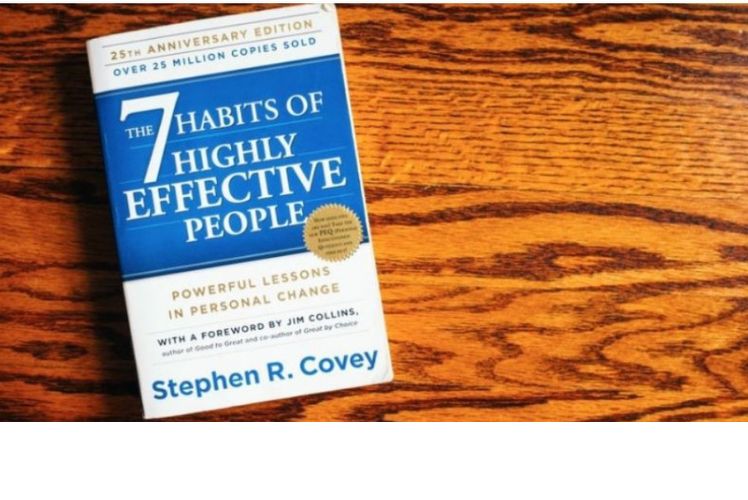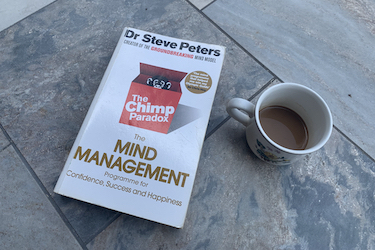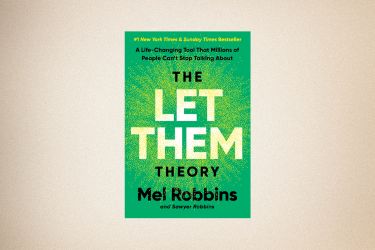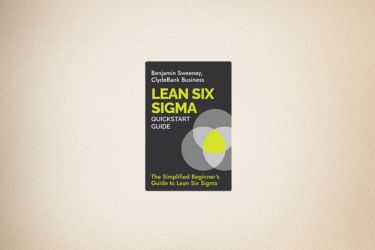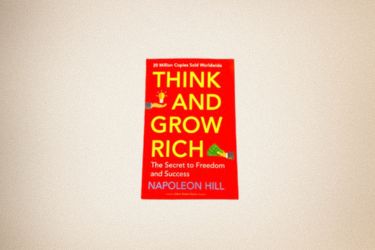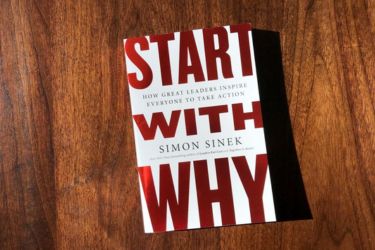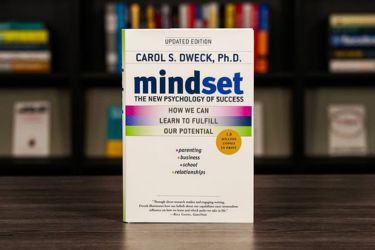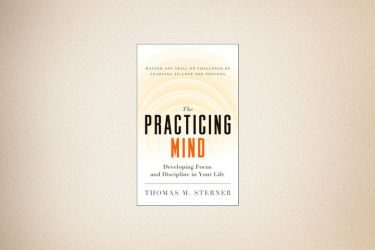Stephen Covey's "The 7 Habits of Highly Effective People" stands as one of the most influential self-help books ever written, transforming how millions approach personal and professional development since its publication in 1989. This groundbreaking work doesn't offer quick fixes or superficial tips—instead, it presents a comprehensive framework for building character and achieving lasting success through principle-centred living.
We believe this book deserves its reputation as a timeless classic because it focuses on developing strong character rather than pursuing quick wins or manipulative techniques. Covey's approach emphasises the importance of aligning our actions with our deepest values, creating habits that foster both personal effectiveness and meaningful relationships with others.
What makes this book particularly relevant today is its holistic approach to success, addressing everything from proactive behaviour and goal-setting to collaboration and personal renewal. Whether you're a business leader, student, or someone seeking personal growth, Covey's seven habits provide a roadmap for becoming more effective whilst maintaining integrity and purpose in all aspects of life.
Key Takeaways
- The book focuses on character development and principle-based living rather than quick-fix solutions for success
- Covey's seven habits provide a comprehensive framework for personal effectiveness, relationships, and continuous improvement
- The work remains highly relevant decades after publication due to its timeless principles and practical applications across all areas of life
About the Author: Stephen R. Covey
Stephen R. Covey was a renowned American educator, author, and businessman who transformed how we think about personal effectiveness and leadership. His academic background and business experience shaped his unique approach to human development that continues to influence millions worldwide.
Covey's Professional Background
Stephen R. Covey earned his MBA from Harvard Business School and later completed a doctorate at Brigham Young University. He spent much of his career in academia, serving as a professor at Brigham Young University's School of Business.
Covey founded the Covey Leadership Centre in 1985. This organisation focused on leadership development and organisational effectiveness. The company later merged with Franklin Quest to become FranklinCovey, a global consulting firm.
His business experience gave him practical insights into workplace challenges. Covey worked with Fortune 500 companies as a consultant and speaker. This combination of academic knowledge and real-world application made his teachings particularly valuable.
Before writing his famous book, Covey spent years researching success literature. He studied 200 years of writings on success and effectiveness. This research formed the foundation for his seven habits framework.
Influence on Personal Development
Covey revolutionised the personal development field by focusing on character rather than personality. Traditional self-help books emphasised techniques and quick fixes. Covey argued that lasting change comes from developing fundamental principles and values.
His approach emphasised principle-centred leadership. He believed that universal principles like integrity, fairness, and human dignity should guide our actions. This philosophy influenced countless leaders and organisations worldwide.
Covey introduced the concept of paradigm shifts to mainstream audiences. He taught that changing how we see problems is often more important than changing our behaviour. This idea became central to modern coaching and leadership development.
His work bridged the gap between personal and professional effectiveness. Covey showed that the same principles apply whether we're managing ourselves or leading others.
Legacy and Impact
Stephen Covey's legacy extends far beyond his bestselling book. He authored over 40 books during his career, many becoming international bestsellers. His works have been translated into dozens of languages.
The 7 Habits became one of the most influential business books ever written. Since its publication in 1989, it has sold over 25 million copies worldwide. The book consistently appears on lists of essential business and self-help literature.
Covey received numerous awards for his contributions to leadership and education. Time magazine named him one of the 25 most influential Americans. He also received the International Entrepreneur of the Year award.
His concepts continue to shape modern leadership training programmes. Many corporations and educational institutions still use his frameworks today. The FranklinCovey company continues to deliver his teachings to organisations globally.
Overview of The 7 Habits of Highly Effective People
Stephen Covey's landmark work emerged from years of research into success literature and became a foundational text in self-help publishing. The book presents a principle-centred framework that targets both personal and professional development through character-based ethics rather than quick-fix techniques.
Origins and Publication
Stephen R. Covey published The 7 Habits of Highly Effective People in 1989 after extensive research into success literature spanning over 200 years. We can trace the book's foundation to Covey's doctoral work and his experience teaching at Brigham Young University.
The book emerged during America's need for renewed leadership principles in the 1990s. Covey identified a shift from character-based success principles to personality-focused techniques in modern self-help literature.
His research revealed that lasting effectiveness required fundamental character development. This insight became the cornerstone of his holistic approach to personal development.
The timing proved perfect, as readers sought deeper meaning beyond surface-level productivity tips.
Core Purpose and Audience
The 7 habits target anyone seeking genuine effectiveness rather than temporary success. Covey designed his principles for executives, students, parents, and professionals across all industries.
We see the book addressing two primary audiences: individuals wanting personal growth and organisations seeking leadership development. The principles apply equally to both contexts.
Covey's approach emphasises character ethics over personality techniques. This means focusing on fundamental principles like integrity and courage rather than quick communication tricks.
The book promises transformation through principle-centred living. Readers learn to align their actions with timeless values that create lasting effectiveness.
Book Structure and Approach
The book divides into four main parts that build systematically upon each other. Part One introduces paradigms and principles as the foundation for change.
Parts Two through Four present the seven habits in three progressive stages:
- Habits 1-3: Private victories (self-mastery)
- Habits 4-6: Public victories (relationship effectiveness)
- Habit 7: Renewal and continuous improvement
Each habit receives detailed explanation with practical exercises. Covey includes real-world examples and case studies throughout.
The holistic approach ensures readers develop both personal character and interpersonal skills. This comprehensive method distinguishes the book from other self-help literature focused on isolated techniques.
Exploring the Seven Habits
The first three habits focus on achieving personal mastery through proactivity, vision, and effective time management. These foundational principles help us move from dependence to independence by taking control of our responses, defining our purpose, and organising our priorities.
Be Proactive
Being proactive means taking responsibility for our lives instead of blaming circumstances or other people. We focus on what we can control rather than wasting energy on things outside our influence.
Covey introduces the circle of influence concept. This includes areas where we have direct control, such as our attitudes, decisions, and responses. The circle of concern contains issues that affect us but which we cannot directly change.
Proactive people expand their circle of influence by working on things they can control. They use proactive language like "I can" and "I will" instead of reactive phrases like "I have to" or "if only."
Self-awareness plays a crucial role in proactivity. We must recognise the gap between what happens to us and how we respond. This space gives us the power to choose our reactions based on our values rather than our emotions.
Taking responsibility means owning our choices and their consequences. We stop making excuses and start making progress towards our goals.
Begin with the End in Mind
This habit involves creating a clear vision of what we want to achieve in life. We start by imagining our funeral and considering what we would want people to say about us.
A personal mission statement serves as our constitution. It defines our values, principles, and long-term goals. This document guides our daily decisions and keeps us focused on what matters most.
Personal integrity develops when our actions align with our deepest values. We make choices based on our mission statement rather than external pressures or immediate circumstances.
Mental creation comes before physical creation. We must first envision our desired outcomes clearly before we can achieve them in reality.
This habit helps us avoid the busy trap. Without a clear destination, we might climb the ladder of success only to discover it was leaning against the wrong wall.
Put First Things First
This habit focuses on prioritisation and time management. We organise our activities based on importance rather than urgency.
The Eisenhower Matrix divides tasks into four categories:
- Important and urgent (crises, emergencies)
- Important but not urgent (prevention, planning, development)
- Urgent but not important (interruptions, some emails)
- Neither urgent nor important (time wasters, trivial activities)
Effective people spend most of their time in the important but not urgent category. This prevents crises and creates better long-term results.
We must learn to say no to good opportunities so we can say yes to the best ones. This requires courage because we might disappoint others in the short term.
Weekly planning works better than daily planning. We can balance different life roles and ensure important activities receive adequate attention across all areas of our lives.
Collaboration and Relationship Habits
These three habits focus on building strong partnerships with others through mutual respect, understanding, and creative cooperation. They teach us how to create win-win situations, listen with empathy, and work together to achieve results that benefit everyone involved.
Think Win-Win
Think Win-Win represents an abundance mentality that seeks mutually beneficial solutions in all interactions. Rather than viewing relationships as competitions where one person must lose for another to win, this approach looks for outcomes that satisfy everyone involved.
This mindset requires us to balance courage with consideration. We must be brave enough to express our needs whilst remaining thoughtful about others' concerns.
Win-win thinking works best when both parties share this philosophy. It creates trust and opens doors for long-term collaboration rather than short-term victories.
Key characteristics of win-win thinking include:
- Seeking solutions that benefit all parties
- Building relationships based on mutual respect
- Focusing on abundance rather than scarcity
- Balancing personal needs with others' interests
When win-win isn't possible, Covey suggests "no deal" as a valid option. This means walking away rather than accepting a harmful agreement.
Seek First to Understand, Then to Be Understood
This habit emphasises empathetic listening as the foundation of effective communication. Most people listen with the intent to reply rather than truly understand what others are saying.
Empathetic listening means putting ourselves in another person's shoes. We listen not just to their words but also to their feelings and underlying concerns.
The four levels of listening are:
- Ignoring - not listening at all
- Pretending - appearing to listen without real attention
- Selective - hearing only parts that interest us
- Empathetic - listening to understand completely
When we truly understand someone's perspective, they become more willing to listen to ours. This creates a foundation for meaningful dialogue and problem-solving.
Effective communication starts with making others feel heard and valued. Only then can we share our own thoughts and expect genuine consideration.
Synergise
Synergy occurs when teamwork produces results greater than the sum of individual efforts. It represents the highest form of human interaction and collaboration.
True synergy requires openness to new ideas and creative solutions. We must value differences in perspectives rather than seeing them as obstacles.
Elements that create synergy include:
- Respecting diverse viewpoints
- Encouraging creative thinking
- Building on others' ideas
- Maintaining open communication
Synergy often produces unexpected solutions that none of the participants could have imagined alone. It transforms conflict into collaboration and competition into cooperation.
The process requires trust and psychological safety. Team members must feel comfortable sharing unconventional ideas without fear of judgement or ridicule.
When we truly synergise, we create something entirely new and innovative. The result benefits everyone involved and often exceeds original expectations.
The Habit of Renewal: Sharpening the Saw
Habit 7 focuses on self-renewal across four key dimensions of our lives. It requires us to maintain continuous growth through balanced self-care practices.
Continuous Self-Improvement
"Sharpen the saw" means we must regularly renew ourselves to stay effective. Just like a dull saw cannot cut wood properly, we lose our ability to perform when we neglect self-renewal.
This habit demands discipline and imagination. We need to find ways to nurture ourselves consistently rather than waiting until we burn out.
Key aspects of continuous self-improvement include:
- Regular self-assessment of our current state
- Creating daily and weekly renewal routines
- Investing time in activities that restore our energy
- Viewing self-care as essential, not optional
Continuous growth happens when we make renewal a priority. We cannot pour from an empty cup. This habit supports all other habits by maintaining our capacity to be effective.
Without regular sharpening, we become less productive over time. Our decision-making suffers, and we struggle to inspire others or think clearly.
Balancing Physical, Mental, Emotional, and Spiritual Renewal
Effective self-renewal requires attention to four dimensions of our nature. Each area needs regular investment to maintain balance.
Physical renewal involves exercise, proper nutrition, and adequate rest. We need to care for our bodies through regular movement and healthy habits.
Mental renewal includes reading, learning new skills, and engaging in challenging activities. We must continuously expand our knowledge and mental capacity.
Emotional and social renewal focuses on building relationships and managing our feelings. We need meaningful connections with others and emotional intelligence.
Spiritual renewal involves connecting with our values and purpose. This might include meditation, prayer, or spending time in nature.
The most effective approach balances all four areas rather than focusing on just one. We achieve optimal renewal when we address each dimension regularly through planned activities and habits.
Principles and Philosophies Underpinning the Habits
Covey built his seven habits on two core philosophical foundations that reshape how we approach personal development. The book distinguishes between character-based versus personality-based approaches to effectiveness, whilst promoting an abundance mindset that enables lasting positive transformation.
Character Ethic vs Personality Ethic
Covey argues that true effectiveness stems from developing our character ethic rather than relying solely on the personality ethic. The character ethic focuses on fundamental principles like integrity, humility, and courage. These traits form the foundation of lasting success.
The personality ethic emphasises techniques and quick fixes. It includes things like:
- Communication skills
- Positive thinking methods
- Image management tactics
Covey shows us that the personality ethic became popular in the 20th century. However, it only addresses surface-level behaviours.
Character-based habits create genuine change from the inside out. They help us build trust with others naturally. When we focus on our character first, our personality becomes more authentic.
The book demonstrates that sustainable effectiveness requires both approaches. Yet character must come first as the foundation.
Abundance Mentality and Positive Change
The abundance mentality represents a key philosophy behind effective habits. This mindset believes there are enough resources and opportunities for everyone to succeed. It contrasts sharply with a scarcity mentality.
People with abundance thinking:
- Celebrate others' successes
- Share recognition willingly
- Seek win-win solutions
- View challenges as growth opportunities
This mentality enables positive change because we stop seeing life as a zero-sum game. When we believe abundance exists, we become more generous and collaborative.
Covey connects this philosophy directly to several habits. It helps us think win-win in relationships. It also encourages us to seek first to understand others rather than compete with them.
The abundance mentality transforms how we approach both personal and professional situations. It creates space for genuine partnership and mutual benefit.
Implementation and Practical Applications
Putting Covey's seven habits into daily practice requires specific exercises and structured approaches. Success comes through consistent reflection activities, addressing common obstacles, and building these principles into long-term routines for sustained personal growth.
Practical Exercises and Reflection
Daily Habit Tracking helps us monitor progress across all seven habits. We can create a simple chart rating ourselves 1-10 on each habit daily.
Start with proactive language exercises. Replace "I can't" with "I choose not to" in conversations. This shifts our mindset from victim to empowered decision-maker.
For "Begin with the End in Mind," write a personal mission statement. Spend 30 minutes weekly reviewing and refining it. Ask ourselves what we want people to say at our funeral.
Time management matrices help us practise "Put First Things First." List all tasks in four boxes: urgent/important, not urgent/important, urgent/not important, neither urgent nor important.
Weekly planning sessions become crucial for professional development. Block time for Quadrant II activities like relationship building and skill development.
Empathic listening practice strengthens our interpersonal skills. In conversations, repeat back what others say before responding. This builds deeper connections and understanding.
Overcoming Challenges and Obstacles
Habit formation takes 21-66 days on average. We often give up too early when results don't appear immediately.
Time constraints pose the biggest challenge. Start with just one habit and practise it for 15 minutes daily. Building momentum matters more than perfection.
Resistance from others frequently occurs when we change our behaviour. Family and colleagues may feel threatened by our personal growth efforts.
Social pressure can derail progress. We might face criticism for setting boundaries or refusing urgent but unimportant requests.
Perfectionism becomes a trap. Missing one day doesn't ruin everything. Get back on track the next day without self-judgement.
Create accountability systems with trusted friends or colleagues. Share weekly progress updates to maintain momentum during difficult periods.
Environmental factors affect success. Remove temptations and create supportive spaces that encourage positive habits rather than old patterns.
Long-Term Integration
Monthly reviews ensure continuous growth beyond the initial learning phase. Assess which habits need more attention and adjust strategies accordingly.
Professional development accelerates when we apply these principles in leadership roles. Delegate effectively using Habit 3's priority matrix.
Teach others to reinforce our own learning. Share concepts with team members or family to deepen understanding and create supportive environments.
Integrate habits into existing routines rather than creating entirely new schedules. Add empathic listening to current meetings or weekly planning to existing calendar blocks.
Celebrate small wins throughout the journey. Acknowledge when we choose proactive responses over reactive ones, even in minor situations.
Leadership opportunities naturally emerge as we embody these principles consistently. Others notice our reliability and seek our guidance on important decisions.
Build habit stacks by linking new behaviours to established routines. Review personal mission statements whilst drinking morning coffee, for example.
Comparison with Other Personal Development Works
Covey's work stands apart from many contemporary self-help books through its principle-centred approach and character-based foundation. Modern habits-focused literature offers different methodologies for achieving similar goals of personal effectiveness and growth.
Atomic Habits and Related Literature
James Clear's Atomic Habits focuses on small, incremental changes to build effective routines. Clear emphasises the mechanics of habit formation through cue-reward cycles.
Covey's approach differs significantly. His habits represent broad life principles rather than specific behavioural loops. Where Clear discusses 1% improvements, Covey advocates for fundamental character shifts.
Key Differences:
- Scope: Atomic habits target specific behaviours; Covey's habits encompass entire life philosophies
- Timeline: Clear focuses on immediate implementation; Covey expects longer-term character development
- Method: Clear uses scientific habit research; Covey draws from timeless principles and leadership theory
Both books complement each other well. Clear's tactical approach can help implement Covey's broader principles into daily routines.
Distinctive Features and Influence
Covey's work predates most modern personal development literature by decades. His principle-centred leadership model influenced countless business and self-help authors.
Unlike many self-help books that promise quick fixes, Covey demands deep personal reflection. His interdependence model moves beyond individual success to collaborative effectiveness.
The book's religious undertones and moral framework distinguish it from secular productivity guides. Covey integrates character ethics with practical effectiveness.
His influence appears in modern works from Simon Sinek's leadership philosophy to Cal Newport's productivity methods. The seven habits framework remains a cornerstone reference in personal development circles.
Cultural Impact and Lasting Significance
The 7 Habits of Highly Effective People has fundamentally reshaped how we understand leadership and effectiveness across diverse cultures and institutions. Its principles have become deeply embedded in professional development programmes and educational curricula worldwide, creating a lasting legacy that continues to influence new generations of leaders.
Influence on Modern Leadership
Covey's work transformed modern leadership theory by shifting focus from personality-based techniques to character-based principles. The book introduced concepts like principle-centred leadership that became standard in leadership development programmes.
Major corporations adopted Covey's habits as core leadership competencies. Companies began evaluating managers on their ability to "be proactive" and "begin with the end in mind."
The framework influenced executive coaching practices globally. Leadership consultants regularly reference the seven habits when developing training materials.
Business schools integrated Covey's principles into their management curricula. MBA programmes now commonly teach his effectiveness model as foundational leadership theory.
The book's emphasis on personal responsibility and character development challenged traditional command-and-control leadership styles. This shift helped create more collaborative workplace cultures.
Adoption in Professional and Educational Settings
Educational institutions widely embraced the habits as frameworks for student development. Universities created courses specifically around Covey's principles.
Corporate training departments built extensive programmes around the seven habits. Fortune 500 companies invested millions in Covey-based professional development initiatives.
Government agencies adopted the habits for public sector leadership training. Military organisations integrated the principles into officer development programmes.
Healthcare systems used the habits to improve patient care and staff effectiveness. Non-profit organisations applied the framework to enhance mission delivery.
The habits became common language in professional settings. Terms like "synergise" and "sharpening the saw" entered everyday workplace vocabulary.
Global Reach and Enduring Popularity
The book has sold over 40 million copies worldwide in multiple languages. This remarkable reach demonstrates its universal appeal across different cultures.
Educational systems in dozens of countries incorporate Covey's principles. The habits transcend cultural boundaries whilst remaining relevant to diverse populations.
Digital platforms and social media continue spreading the book's influence. New generations discover the habits through online content and mobile applications.
The FranklinCovey organisation maintains the book's legacy through ongoing research and updated materials. They ensure the habits remain relevant to contemporary challenges.
The book's principles appear consistently in modern self-help literature. Authors frequently reference or build upon Covey's foundational work, cementing its lasting significance in the effectiveness and personal development genre.
Frequently Asked Questions
Readers often have specific questions about Covey's principles, implementation strategies, and the book's practical applications. These common queries address everything from core concepts to organisational implementation methods.
What are the key principles outlined in 'The 7 Habits of Highly Effective People'?
The seven habits focus on character development and interpersonal effectiveness. The first three habits centre on personal mastery: Be Proactive, Begin with the End in Mind, and Put First Things First.
Habits four through six address relationship building. These include Think Win-Win, Seek First to Understand Then to Be Understood, and Synergise.
The seventh habit, Sharpen the Saw, emphasises continuous self-renewal. This involves maintaining physical, mental, emotional, and spiritual well-being.
Covey builds these habits on principles of integrity, discipline, and purpose. The approach prioritises character development over quick personality fixes.
Can you summarise the main points of 'The 7 Habits of Highly Effective People'?
The book teaches that lasting success comes from developing strong character rather than using surface-level techniques. Covey argues that effectiveness begins with personal responsibility and proactive behaviour.
Goal setting and prioritisation form crucial elements of the system. The book emphasises focusing on important rather than urgent tasks.
Relationship skills receive significant attention throughout the work. Covey promotes collaborative approaches and genuine understanding of others' perspectives.
The framework balances personal growth with professional development. It provides tools for both individual achievement and team leadership.
What are the critiques and praises commonly associated with Covey's 'The 7 Habits of Highly Effective People'?
Readers praise the book's timeless principles and practical applicability. Many appreciate its focus on character development rather than quick fixes.
The comprehensive approach to personal and professional growth receives widespread acclaim. Business leaders often cite its effectiveness in organisational settings.
Some critics find the content overly idealistic or common-sense based. Others suggest the religious undertones may not appeal to all readers.
The book's length and detailed explanations can feel repetitive to some. However, most agree the core concepts remain valuable despite these concerns.
Is there a quick synopsis available for 'The 7 Habits of Highly Effective People' that captures its essence?
The book presents a character-based approach to personal and professional effectiveness. It guides readers through seven sequential habits that build upon each other.
The first three habits develop personal mastery and self-discipline. Habits four through six focus on building strong relationships and collaborative skills.
The final habit emphasises continuous improvement and self-renewal. Together, these habits create a framework for sustained success and fulfilment.
Covey's central message is that true effectiveness comes from aligning actions with core values and principles. This approach leads to both individual achievement and positive relationships.
What other works has Stephen Covey published besides 'The 7 Habits of Highly Effective People'?
Covey authored numerous books building on his original concepts. 'First Things First' expands on time management and priority setting principles.
'The Leader in Me' applies his leadership principles to educational settings. 'The Speed of Trust' explores how trust affects organisational effectiveness.
'Principle-Centered Leadership' examines leadership through the lens of universal principles. 'The 8th Habit' addresses finding one's voice in the modern world.
His son, Stephen M.R. Covey, has continued developing these concepts. The Covey name remains associated with character-based leadership and personal development.
How can one implement the strategies from 'The 7 Habits of Highly Effective People' in a team or organisational setting?
Start by establishing clear mission statements and shared values within the organisation. This creates the foundation for principle-centred decision making.
Encourage proactive behaviour by giving team members autonomy and responsibility. Focus on results rather than micromanaging daily activities.
Implement regular goal-setting sessions that align individual objectives with organisational purposes. Use the important versus urgent matrix for team prioritisation.
Develop communication skills through active listening training and collaborative problem-solving sessions. Create systems that reward win-win thinking and synergistic solutions.
Establish ongoing development programmes that support continuous learning. Encourage team members to maintain work-life balance for sustained effectiveness.

